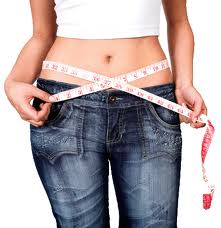
Does eating breakfast make a difference in your overall weight? Julian Omidi looks at evidence that the type of breakfast eaten could make a difference in how hungry you feel throughout the day.
We’ve all heard that breakfast is the most important meal of the day, and to an extent, it is true. A good breakfast gives you the nutrients and energy that enable you to function efficiently throughout the day. While the evidence that people who eat breakfast are slimmer overall than people who do not is scant, a new study does seem to indicate that eating a high protein breakfast might lead to less high-fat and high sugar snacking later on in the day.[1]
The study, which was published in the American Journal of Clinical Nutrition, revealed that the consumption of a breakfast high in protein (as opposed to a high-fiber breakfast of cereal) resulted in a reduction of brain wave activity that led to the craving of high fat snack foods.
The study was conducted on 20 overweight or obese women between the ages of 18 and 20. The participants were given either a high protein breakfast, a low protein breakfast, or were told to skip breakfast entirely, and told to fill out surveys regarding their feelings of satiety throughout the day. The subjects also had blood samples taken, and submitted to MRI scans. After six days the researchers found that the participants who had eaten a high protein breakfast not only reported feeling fuller for a longer amount of time, but also experienced a change in brain chemistry that reduced cravings for snacks.
Even though the importance of eating breakfast has been stressed for decades, this is the first study that suggests a correlation between a specific high-protein breakfast and feeling satisfied for a longer stretch of time. According to study author Heather Leidy, assistant professor in the Department of Nutrition and Exercise Physiology at the University of Missouri:
“These data suggest that eating a protein-rich breakfast is one potential strategy to prevent overeating and improve diet quality by replacing unhealthy snacks with high quality breakfast foods. Eating a protein-rich breakfast impacts the drive to eat later in the day, when people are more likely to consume high-fat or high-sugar snacks.”
A survey taken in 2011 indicated that approximately 31 million Americans skipped breakfast every day. It is estimated that roughly one third of United States residents can be classified as overweight or obese. In our struggle to combat obesity, every available weapon is certainly needed. If we make this one fairly simple change, we might be able to succeed in reducing the desire to eat potentially dangerous, high calorie snack foods.
By Julian Omidi
[1] The Huffington Post: High Protein Breakfast Helps Prevent Unhealthy Snacking Later, Study Says 3/28/2013 http://www.huffingtonpost.com/2013/03/28/protein-breakfast-prevent-snacking_n_2971476.html
We’ve all heard that breakfast is the most important meal of the day, and to an extent, it is true. A good breakfast gives you the nutrients and energy that enable you to function efficiently throughout the day. While the evidence that people who eat breakfast are slimmer overall than people who do not is scant, a new study does seem to indicate that eating a high protein breakfast might lead to less high-fat and high sugar snacking later on in the day.[1]
The study, which was published in the American Journal of Clinical Nutrition, revealed that the consumption of a breakfast high in protein (as opposed to a high-fiber breakfast of cereal) resulted in a reduction of brain wave activity that led to the craving of high fat snack foods.
The study was conducted on 20 overweight or obese women between the ages of 18 and 20. The participants were given either a high protein breakfast, a low protein breakfast, or were told to skip breakfast entirely, and told to fill out surveys regarding their feelings of satiety throughout the day. The subjects also had blood samples taken, and submitted to MRI scans. After six days the researchers found that the participants who had eaten a high protein breakfast not only reported feeling fuller for a longer amount of time, but also experienced a change in brain chemistry that reduced cravings for snacks.
Even though the importance of eating breakfast has been stressed for decades, this is the first study that suggests a correlation between a specific high-protein breakfast and feeling satisfied for a longer stretch of time. According to study author Heather Leidy, assistant professor in the Department of Nutrition and Exercise Physiology at the University of Missouri:
“These data suggest that eating a protein-rich breakfast is one potential strategy to prevent overeating and improve diet quality by replacing unhealthy snacks with high quality breakfast foods. Eating a protein-rich breakfast impacts the drive to eat later in the day, when people are more likely to consume high-fat or high-sugar snacks.”
A survey taken in 2011 indicated that approximately 31 million Americans skipped breakfast every day. It is estimated that roughly one third of United States residents can be classified as overweight or obese. In our struggle to combat obesity, every available weapon is certainly needed. If we make this one fairly simple change, we might be able to succeed in reducing the desire to eat potentially dangerous, high calorie snack foods.
By Julian Omidi
[1] The Huffington Post: High Protein Breakfast Helps Prevent Unhealthy Snacking Later, Study Says 3/28/2013 http://www.huffingtonpost.com/2013/03/28/protein-breakfast-prevent-snacking_n_2971476.html

 RSS Feed
RSS Feed